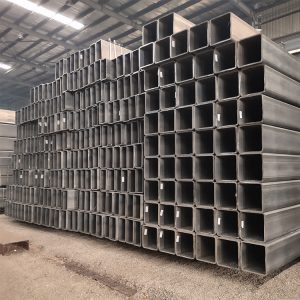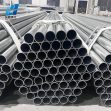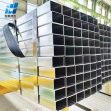Quality Control Measures
As the demand for steel pipes continues to rise, reducing production costs has become a top priority for manufacturers. With the right strategies in place, it is possible to produce high-quality steel pipes at a lower cost, which can help boost profitability and competitiveness in the market. However, quality control measures are also of importance for China steel tube manufacturers.
Quality control measures play a critical role in ensuring that steel pipes are manufactured to meet the required specifications and standards. These measures help to identify any defects or deviations from the expected quality during the manufacturing process, allowing manufacturers to take corrective action before the pipes are shipped to customers.

One of the most important quality control measures in the production of carbon steel pipe is raw material inspection. This involves checking the chemical composition, mechanical properties, and dimensions of the steel used in the production process. Any inconsistencies or defects in the raw material can significantly affect the quality of the final product, so it is essential to ensure that the materials meet the required standards.
In-process inspection is another critical quality control measure used in steel pipe production. This involves checking the pipes at various stages of the manufacturing process to ensure that they are being produced according to the required specifications. For example, inspectors may measure the wall thickness, diameter, and straightness of the thinner wall steel pipe to ensure that they meet the required standards.
Testing is also an essential quality control measure in steel pipe production. Various tests are carried out to check the pipes’ strength, durability, and resistance to corrosion. These tests include hydrostatic testing, non-destructive testing, and mechanical testing, among others. Visual inspection is another important quality control measure of spiral steel pipe used to detect surface defects in steel pipes. This involves using tools such as magnifying glasses, microscopes, and ultrasonic equipment to inspect the surface of the pipes for cracks, pits, and other defects. Proper documentation is also critical for quality control in steel pipe production. This involves maintaining records of the raw materials used, in-process inspections, and final testing results. These records can be used to track the manufacturing process and ensure that all the required specifications have been met.
Overall, quality control measures are essential in steel pipe production to ensure that the final product meets the required standards for durability, strength, and resistance to corrosion. By using these measures, manufacturers can produce high-quality pipes that meet the needs of their customers and provide long-lasting performance.
Tel: +86 18202256900 Email: steel@fwssteel.com
Previous: Resistant to corrosion
Next: Pipe market pattern










